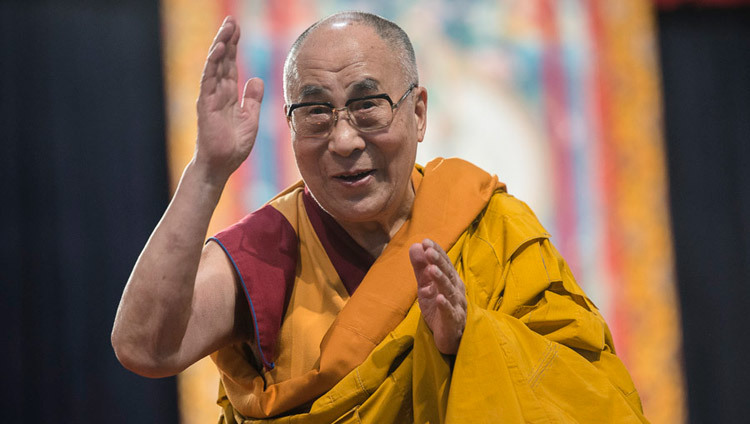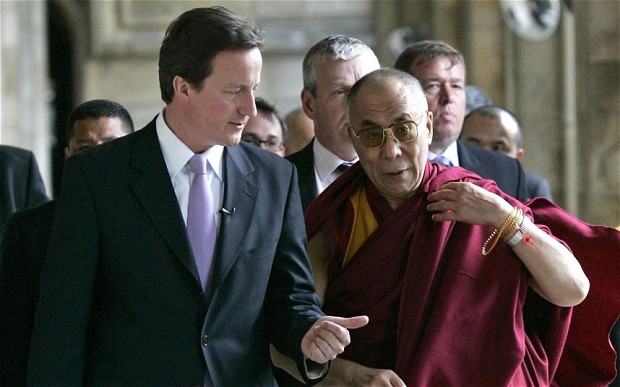HIS HOLINESS THE DALAI LAMA has said that Donald Trump has a “lack of moral principle” during an interview with the BBC.
He was asked his opinion of America’s 45th President and the 83-year-old said that Trump’s emotions were “a little bit complicated” and criticised his ‘America-first’ approach to policy.

“One day he says something, another day he says something [else],” the Dalai Lama said.
“But I think [there’s a] lack of moral principle.
“When he became President, he expressed: ‘America First’. That is wrong. America, they should take the global responsibility.”
This differs from the remarks he made about Trump back in 2016 where he said he had “no worries” about a Trump Presidency.
The Dalai Lama is yet to meet with President Trump, and this is largely due to Trump’s close connection with Chinese President Xi Jinping.
It’s an example of the power Xi and Beijing has over world leaders who choose to meet with the Dalai Lama.
In 2012, China temporarily suspended relations with the UK due to Prime Minister David Cameron’s meeting with him.
During the interview, the Dalai Lama sensationally suggested that if a female was to be his successor (no woman has been leader of the Bhuddist faith) then she must be good-looking, so that people will want to look at her.
A wry smile as he said it suggested this was a self-deprecating dig at his own looks rather than a sexist jibe.
 David Cameron meeting the Dalai Lama
David Cameron meeting the Dalai LamaWhen asked about Brexit, the Dalai Lama extended his inherently global view of the world.
“I’m one admirer of [the] spirit of [the] European Union,” he said.
“I’m [an] outsider (referring to his exile from Tibet) but I feel [it is] better [to] remain in the Union.”
He went on to say that European countries should look to take in migrants from other countries, to educate and train them, but with the ultimate aim of eventually returning them to their homelands.
This idea mirrors his own personal yearnings. He was forced to flee Tibet in 1959 after China sent troops into the region. He has since lived in exile, along with 10,000 other Tibetans in the Dharamsala district of India.
He vows to return home one day, though, amid what he describes as growing changes in China’s attitude regarding Tibet.

